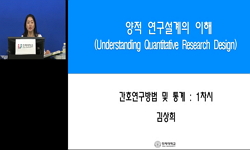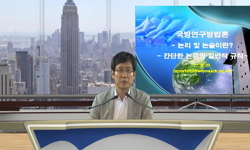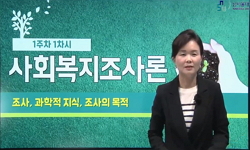The purpose of the present study was to investigate the factors that can influence posttraumatic growth(PTG), and to compare the subjective experience of PTG reported by trauma survivors and the objective observation made by professional therapists th...
http://chineseinput.net/에서 pinyin(병음)방식으로 중국어를 변환할 수 있습니다.
변환된 중국어를 복사하여 사용하시면 됩니다.
- 中文 을 입력하시려면 zhongwen을 입력하시고 space를누르시면됩니다.
- 北京 을 입력하시려면 beijing을 입력하시고 space를 누르시면 됩니다.

외상 후 성장에 대한 질적 연구: 경험자와 치료자 관점을 중심으로 = A Qualitative Study for the Process of Posttraumatic Growth: A Comparison of trauma survivors’ and therapists’ perspective
한글로보기https://www.riss.kr/link?id=A103673099
- 저자
- 발행기관
- 학술지명
- 권호사항
-
발행연도
2017
-
작성언어
Korean
- 주제어
-
등재정보
KCI등재
-
자료형태
학술저널
- 발행기관 URL
-
수록면
199-228(30쪽)
-
KCI 피인용횟수
18
- DOI식별코드
- 제공처
- 소장기관
-
0
상세조회 -
0
다운로드
부가정보
다국어 초록 (Multilingual Abstract)
Data analysis was performed using the method of Giorgi(1985/2004) and Van Kaam(1969). All participants reported PTG in the various aspects of self, relationships, the attitude of life, and the perspective on life. Both trauma survivors and professional therapists commonly recognized the influence of constructive coping strategies on PTG. Whereas trauma survivors reported that PTG has been influenced by personality strength such as self-efficacy and interpersonal factors including social support, professional therapists emphasized cognitive factors and resiliency. Based on these findings, we discussed the process of PTG synthetically. Limitations of current study and directions for future research were presented.
The purpose of the present study was to investigate the factors that can influence posttraumatic growth(PTG), and to compare the subjective experience of PTG reported by trauma survivors and the objective observation made by professional therapists through qualitative research. The participants consisted of six trauma survivors who reported a PTG, and five professional therapists who usually treated trauma survivors. The participants were individually interviewed using a semi-structured questionnaire, and asked about survivors' traumatic experience and process of PTG, or therapists' observation for their trauma clients.
Data analysis was performed using the method of Giorgi(1985/2004) and Van Kaam(1969). All participants reported PTG in the various aspects of self, relationships, the attitude of life, and the perspective on life. Both trauma survivors and professional therapists commonly recognized the influence of constructive coping strategies on PTG. Whereas trauma survivors reported that PTG has been influenced by personality strength such as self-efficacy and interpersonal factors including social support, professional therapists emphasized cognitive factors and resiliency. Based on these findings, we discussed the process of PTG synthetically. Limitations of current study and directions for future research were presented.
국문 초록 (Abstract)
외상 생존자들은 외상 후 성장이 자기효능감과 같은 성격 강점 및 사회적 지지를 포함하는 대인관계 요인의 영향을 받는다고 보고한 반면, 치료자들은 인지적 요인과 회복탄력성을 강조하였다는 측면에서 차이가 있었다. 이러한 결과를 바탕으로 외상 후 성장 과정에 대해 종합적으로 논의하였고, 본 연구의 제한점과 향후 연구의 방향을 제시하였다.
본 연구의 목적은 질적 연구를 통해서 외상 후 성장에 영향을 미칠 수 있는 요인을 탐색하고, 외상 생존자들이 주관적으로 보고한 외상 후 성장과 전문적인 치료자들이 객관적으로 관찰한 ...
본 연구의 목적은 질적 연구를 통해서 외상 후 성장에 영향을 미칠 수 있는 요인을 탐색하고, 외상 생존자들이 주관적으로 보고한 외상 후 성장과 전문적인 치료자들이 객관적으로 관찰한 외상내담자들의 외상 후 성장을 비교ㆍ확인하는 것이었다. 참여자들은 외상 후 성장을 보고하는 외상생존자 6명(남자 3명, 여자 3명)과 외상 생존자를 주로 치료하는 전문 치료자 5명(남자 2명, 여자3명)으로 구성되었다. 이들에게 반구조화된 질문지를 사용하여 생존자들의 외상 경험과 외상 후성장 그리고 치료자들의 외상 내담자에 대한 관찰과 관련된 심층 면담을 실시하였고, 자료는Giorgi(1985/2004)와 Van Kaam(1969)의 방법을 사용하여 분석하였다. 분석 결과, 모든 참가자들은자기, 대인 관계, 삶에 대한 태도 및 관점에서 다양한 외상 후 성장을 보고하였다. 또한 외상 생존자와 전문 치료자는 건설적인 대처 전략이 외상 후 성장에 미치는 영향을 공통적으로 인정하였다.
외상 생존자들은 외상 후 성장이 자기효능감과 같은 성격 강점 및 사회적 지지를 포함하는 대인관계 요인의 영향을 받는다고 보고한 반면, 치료자들은 인지적 요인과 회복탄력성을 강조하였다는 측면에서 차이가 있었다. 이러한 결과를 바탕으로 외상 후 성장 과정에 대해 종합적으로 논의하였고, 본 연구의 제한점과 향후 연구의 방향을 제시하였다.
참고문헌 (Reference)
1 Giorgi, A., "현상학과 심리학연구" 현문사 2004
2 서영석, "한국인이 경험한 외상사건: 종류 및 발생률" 한국상담심리학회 24 (24): 671-701, 2012
3 양승일, "한국·중국·필리핀 간 집단주의 성향 국제비교" 고려대학교 대학원 2004
4 Allen, J., "트라우마의 치유" 학지사 2010
5 신경림, "질적 연구 방법론" 이화여자대학교출판부 2004
6 이정호, "종교적 대처가 외상후성장에 미치는 영향 : 삶의 의미의 매개효과" 가톨릭대학교 대학원 2011
7 최승미, "인지적, 문제해결적 행동 대처 및 사회적 지지가 외상 후 성장에 미치는 영향: PTSD 증상 수준에 따라" 한국인지행동치료학회 13 (13): 307-328, 2013
8 김희정, "유방암 생존자의 외상후성장 관련 요인 탐색" 한국건강심리학회 13 (13): 781-799, 2008
9 한노을, "외상 후 성장에 관한 현상학적 연구 : 아동기 성폭력을 경험한 여성을 중심으로" 서울여자대학교 특수치료전문대학원 2008
10 김지경, "외상 후 성장 연구의 국내 동향과 과제" 한국인지행동치료학회 14 (14): 239-265, 2014
1 Giorgi, A., "현상학과 심리학연구" 현문사 2004
2 서영석, "한국인이 경험한 외상사건: 종류 및 발생률" 한국상담심리학회 24 (24): 671-701, 2012
3 양승일, "한국·중국·필리핀 간 집단주의 성향 국제비교" 고려대학교 대학원 2004
4 Allen, J., "트라우마의 치유" 학지사 2010
5 신경림, "질적 연구 방법론" 이화여자대학교출판부 2004
6 이정호, "종교적 대처가 외상후성장에 미치는 영향 : 삶의 의미의 매개효과" 가톨릭대학교 대학원 2011
7 최승미, "인지적, 문제해결적 행동 대처 및 사회적 지지가 외상 후 성장에 미치는 영향: PTSD 증상 수준에 따라" 한국인지행동치료학회 13 (13): 307-328, 2013
8 김희정, "유방암 생존자의 외상후성장 관련 요인 탐색" 한국건강심리학회 13 (13): 781-799, 2008
9 한노을, "외상 후 성장에 관한 현상학적 연구 : 아동기 성폭력을 경험한 여성을 중심으로" 서울여자대학교 특수치료전문대학원 2008
10 김지경, "외상 후 성장 연구의 국내 동향과 과제" 한국인지행동치료학회 14 (14): 239-265, 2014
11 최승미, "외상 후 성장 관련 변인의 탐색" 고려대학교 대학원 2008
12 이수림, "외상 유형이 외상후성장 및 지혜에 미치는 영향: 사회적 지지와 대처의 매개효과" 한국문화및사회문제심리학회 19 (19): 319-341, 2013
13 김영애, "여성주의적 관점을 적용한 현실치료: 배우자 외도 사례를 중심으로" 한국여성심리학회 20 (20): 253-275, 2015
14 홍상희, "아내 폭력 피해 여성이 폭력을 벗어나는 과정에서 경험하는 변화에 관한 질적 연구" 이화여자대학교 대학원 2009
15 김영재, "소방공무원의 전문직업적 정체성, 사회적 지지, 대처가 외상 후 성장에 미치는 효과" 고려대학교 대학원 2012
16 신선영, "삶의 의미와 사회적 지지가 외상 후 성장에 미치는 영향: 성장적 반추를 매개 변인으로" 학생생활상담연구소 33 (33): 217-235, 2012
17 이숙영, "북한이탈여성의 외상후성장에 관한 질적연구 : 중국 체류 시 결혼 경험이 있는 사례를 중심으로" 건국대학교 대학원 2014
18 이현주, "노인부부가구에서 치매 배우자를 돌보는 남편의 수발 경험에 관한 연구 : Giorgi의 현상학적 연구방법을 활용하여" 이화여자대학교 대학원 2005
19 권석만, "긍정심리학" 학지사 2008
20 임선영, "관계상실 경험자를 대상으로 한 외상후 성장 촉진 프로그램의 효과" 한국인지행동치료학회 14 (14): 339-358, 2014
21 Twerski, A. J., "Twerski on spirituality" Shaar Press 1998
22 Tedeschi, R. G., "Trauma and transformation: Growing in the aftermath of suffering" Sage Publications 1995
23 Sears, S. R., "The yellow brick road and the emerald city : Benefit finding, positive re-appraisal coping, and posttraumatic growth in women with early-stage breast cancer" 22 (22): 487-487, 2003
24 Tedeschi, R. G., "The posttraumatic growth inventory : Measuring the positive legacy of trauma" 9 (9): 455-471, 1996
25 Calhoun, L. G., "The foundation of posttraumatic growth : New considerations" 15 (15): 93-102, 2004
26 Maercker, A., "The Janus face of self-perceived growth : Toward two-component model of posttraumatic growth" 15 (15): 41-48, 2004
27 Peterson, J. L., "Stress, coping, HIV status, psychosocial resources and depressive mood in African American gay, bisexual, and heterosexual men" 24 (24): 461-487, 1996
28 Bandura, A., "Self-efficacy mechanism in human agency" 37 (37): 122-147, 1982
29 Luszczynska, A., "Self-efficacy and social support predict benefit finding 12 months after cancer surgery : The mediating role of coping strategies. Psychology" 10 (10): 365-375, 2005
30 Bandura, A., "Self efficacy : Toward a unifying theory of behaviors change" 84 (84): 191-215, 1977
31 Nishi, D., "Research posttraumatic growth, posttraumatic stress disorder and resilience of motor vehicle accident survivors" 4 (4): 1-6, 2010
32 Hobofoll, S. E., "Refining our understanding of traumatic growth in the face of terrorism : Moving from meaning cognitions to doing what is meaningful" 56 (56): 345-366, 2007
33 Briere, J., "Prevalence, characteristics, and long-term sequelae of natural disaster exposure in the general population" 13 (13): 661-679, 2000
34 Ozer, E. J., "Predictors of posttraumatic stress disorder and symptoms in adults : A meta-analysis" 129 (129): 52-73, 2003
35 Cieslak, R., "Predicting posttraumatic growth among hurricane Katrina survivors living with HIV: The role of self-efficacy, social support, and PTSD symptoms" 22 (22): 449-463, 2009
36 McMillen, J. C., "Posttraumatic growth: What's it all about?" 15 (15): 48-52, 2004
37 Ramos, C., "Posttraumatic growth in the aftermath of trauma : A literature review about related factors and application contexts. Psychology" 2 (2): 43-54, 2013
38 Zoellner, T., "Posttraumatic growth in clinical psychology : A critical review and introduction of a two component model" 26 (26): 626-653, 2006
39 Cordova, M. J., "Posttraumatic growth following breast cancer : A controlled comparison study" 20 (20): 176-185, 2001
40 Bostock, L., "Posttraumatic growth and optimism in health-related trauma : A systematic review" 16 (16): 281-296, 2009
41 Tedeschi, R. G., "Posttraumatic growth : Conceptual foundations and empirical evidence" 15 (15): 1-18, 2004
42 Astin, M. C., "Post-traumatic stress disorder among battered women; Risk and resiliency factors" 8 (8): 17-28, 1993
43 Linley, P A., "Positive change following trauma and adversity : A review" 17 (17): 11-21, 2004
44 Schaefer, J. A., "Personality coping: Theory, research, and application" Praeger 149-170, 1992
45 Schultz, J. M., "Pathways to posttraumatic growth : The contributions of forgiveness and importance of religion and spirituality" 2 (2): 104-114, 2010
46 Mauritzen, J., "Pastoral care for the dying and bereaved" 12 (12): 111-122, 1988
47 Morris, B. A., "Multidimensional nature of posttraumatic growth in an Australian population" 18 (18): 575-585, 2005
48 Bonanno, G. A., "Loss, trauma, and human resilience: Have we underestimated the human capacity to thrive after extremely aversive events?" 59 (59): 20-, 2004
49 Boelen, P. A., "Irrational beliefs and basic assumptions in bereaved university students : A comparison study" 22 (22): 111-129, 2004
50 Park, C. L., "Introduction to the special section : Growth following highly stressful life events-current status and future direction" 74 (74): 791-796, 2006
51 Calhoun, L. G., "Handbook of posttraumatic growth" Lawrence Erlbaum Associates 1-23, 2006
52 Cadell, S., "Factors contributing to posttraumatic growth : A proposed structural equation model" 73 (73): 279-287, 2003
53 Calhoun, L. G., "Facilitating posttraumatic growth: A clinician's guide" Lawrence Erlbaum Associates 1999
54 Van Kaam, A., "Existential foundations of psychology" Doubleday 1969
55 Weiss, T., "Correlates of posttraumatic growth in married breast cancer survivors" 23 (23): 733-746, 2004
56 Evers, A. W. M., "Beyond unfavourable thinking : The illness cognition questionnaire for chronic diseases" 69 (69): 1026-1036, 2001
57 Janoff-Bulman, R., "Attributions of blame and coping in the"real world" : Severe accident victims react to their lot" 35 (35): 351-363, 1977
58 Janoff-Bulman, R., "Assumptive worlds and the stress of traumatic events : Applications of the schema construct" 7 (7): 113-136, 1989
59 Park, C. L., "Assessment and prediction of stress-related growth" 64 (64): 71-105, 1996
60 Joseph, S., "An affective–cognitive processing model of posttraumatic growth" 19 (19): 316-325, 2012
61 Taylor, S. E., "Adjustment to threatening events : A theory of cognitive adaptation" 38 (38): 1161-1173, 1983
62 Calhoun, L. G., "A correlational test of the relationship between postrraumatic growth, religion, and cognitive processing" 13 (13): 521-527, 2000
63 Ehlers, A., "A cognitive model of posttraumatic stress disorder" 38 (38): 319-345, 2000
동일학술지(권/호) 다른 논문
-
신체형 및 심리형 해리와 과각성이 외상 후 스트레스 증상에 미치는 영향: 예비연구
- 한국건강심리학회
- 홍미진
- 2017
- KCI등재
-
대학생의 생활스트레스와 인터넷 중독의 관계에서 불확실성에 대한 인내력 부족과 정서인식 명확성의 매개효과
- 한국건강심리학회
- 정서영
- 2017
- KCI등재
-
정서표현 양가성, 건강통제 소재가 암 환자의 적응에 미치는 영향: 사회적 지지의 조절효과
- 한국건강심리학회
- 김윤정
- 2017
- KCI등재
-
스마트폰 중독 경향집단의스마트폰 관련 자극에 대한 주의편향: 정서스트룹 및 탐침 탐사과제를 중심으로
- 한국건강심리학회
- 허효주
- 2017
- KCI등재
분석정보
인용정보 인용지수 설명보기
학술지 이력
| 연월일 | 이력구분 | 이력상세 | 등재구분 |
|---|---|---|---|
| 2026 | 평가예정 | 재인증평가 신청대상 (재인증) | |
| 2020-01-01 | 평가 | 등재학술지 유지 (재인증) |  |
| 2017-01-01 | 평가 | 등재학술지 유지 (계속평가) |  |
| 2015-08-05 | 학회명변경 | 영문명 : 미등록 -> Korean Health Psychological Association |  |
| 2013-01-01 | 평가 | 등재 1차 FAIL (등재유지) |  |
| 2010-01-01 | 평가 | 등재학술지 유지 (등재유지) |  |
| 2008-01-01 | 평가 | 등재학술지 유지 (등재유지) |  |
| 2006-06-27 | 학회명변경 | 한글명 : -> 한국건강심리학회영문명 : 미등록 -> Korean Health Psychological Association |  |
| 2006-01-01 | 평가 | 등재학술지 유지 (등재유지) |  |
| 2003-01-01 | 평가 | 등재학술지 선정 (등재후보2차) |  |
| 2002-01-01 | 평가 | 등재후보 1차 PASS (등재후보1차) |  |
| 2000-07-01 | 평가 | 등재후보학술지 선정 (신규평가) |  |
학술지 인용정보
| 기준연도 | WOS-KCI 통합IF(2년) | KCIF(2년) | KCIF(3년) |
|---|---|---|---|
| 2016 | 1.77 | 1.77 | 1.69 |
| KCIF(4년) | KCIF(5년) | 중심성지수(3년) | 즉시성지수 |
| 1.54 | 1.62 | 2.8 | 0.22 |




 KCI
KCI







